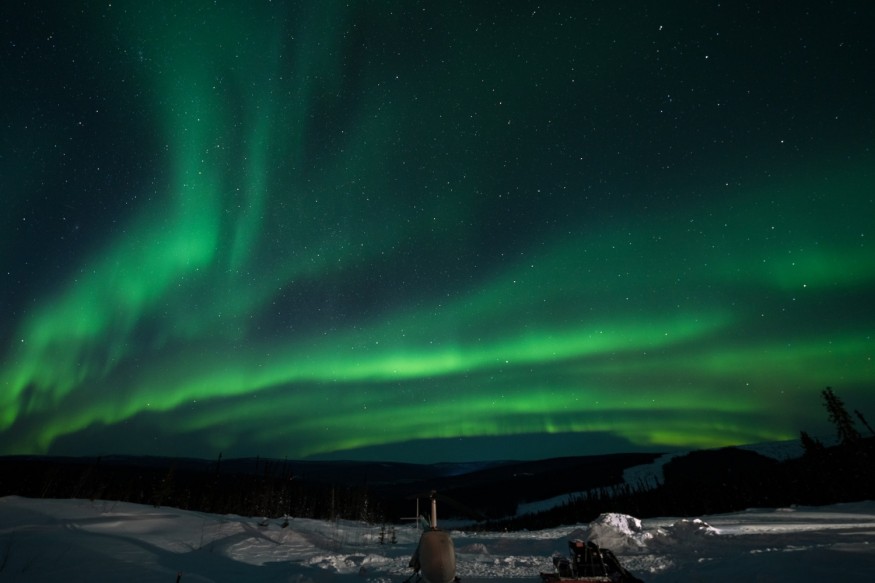
To the joy of a photographer who called himself 'aurora chaser', Alaska's aurora season with a collection of eerie, vivid green auroras that recently flooded the sky.
Eerie Bright Green Aurora and a Crack in the Sky
On September 20, the sky above Fairbanks, Alaska, was lighted by a green aurora.
Vincent Ledvina captured this video of a powerful green aurora dancing in the night sky and reflecting off the snow-covered terrain.
Ledvina, an "aurora chaser" as he calls himself, claimed that this specific video is one of his favorites that he has so far taken.
Ledvina observed that the aurora appeared to come pouring out of what looked like a crack in the night sky.
When I panned up, a crack in the sky literally opened up and aurora came pouring out... one of my favorite clips I have recorded to date. pic.twitter.com/fyZHfkGbdh
— Vincent Ledvina (@Vincent_Ledvina) September 20, 2023
Northern Lights, Aurora Borealis
The phenomenon known as the Aurora, or Northern Lights, has captivated humanity for millennia, mesmerizing the minds of people from different walks of life - scientists, poets, and ordinary individuals alike. Historical accounts of these enchanting displays extend back over two millennia, a testament to their enduring allure.
In some instances, the Aurora over Alaska and other auroral zones may barely manifest, appearing colorless and motionless. Yet, on other occasions, they erupt into a breathtaking spectacle of vibrant, rapidly shifting lights. Towering bright green curtains, tinged with reds at their base, stretch across the entire horizon. They undulate, dance, fold, and unfold before vanishing abruptly, only to reconfigure into new mesmerizing shapes moments later.
The "pulsating Aurora" is a common variant omf the northern lights, intermittently flickering like a celestial switch being toggled on and off.
Spectacular global events known as "great auroral displays" occur after periods of intense solar activity, usually following solar flares near major sunspots. These solar flares eject massive streams of charged particles, predominantly electrons, and protons, which are deflected away from tropical regions by Earth's magnetic field. Consequently, the Aurora graces up to two-thirds of Earth's skies with its brilliant, fast-moving, often deep red luminance during these rare occurrences.
Best Viewing Spots in Alaska
The northern lights, also known as the aurora borealis, are multicolored bands of light that dance in the deep night sky, and Alaska is one of the best places on Earth to observe them. The breathtaking spectacle draws tourists from around the globe to Alaska, where they can also enjoy other winter activities including skiing, dog sledding, snowmobiling, festivals, and athletic events.
Alaska's aurora season spans August to April, when the nights are longer, enhancing the brilliance of the northern lights. Light pollution from towns and cities can obscure the spectacle, so venturing to the outskirts or regions renowned for unpolluted skies is ideal. While the auroras grace the entire state, they frequent the Interior and Arctic areas, with Fairbanks standing out as a premier viewing spot. This city boasts optimal conditions, extended night hours, active auroras, and numerous dedicated tours and accommodations.
For Alaskans, the Aurora is an integral facet of their northern existence, with fall, winter, and spring constituting prime viewing seasons for both residents and off-season tourists. Some Alaskans maintain "Aurora Alerts," a network that swiftly spreads the word when a display commences.
© 2025 NatureWorldNews.com All rights reserved. Do not reproduce without permission.





